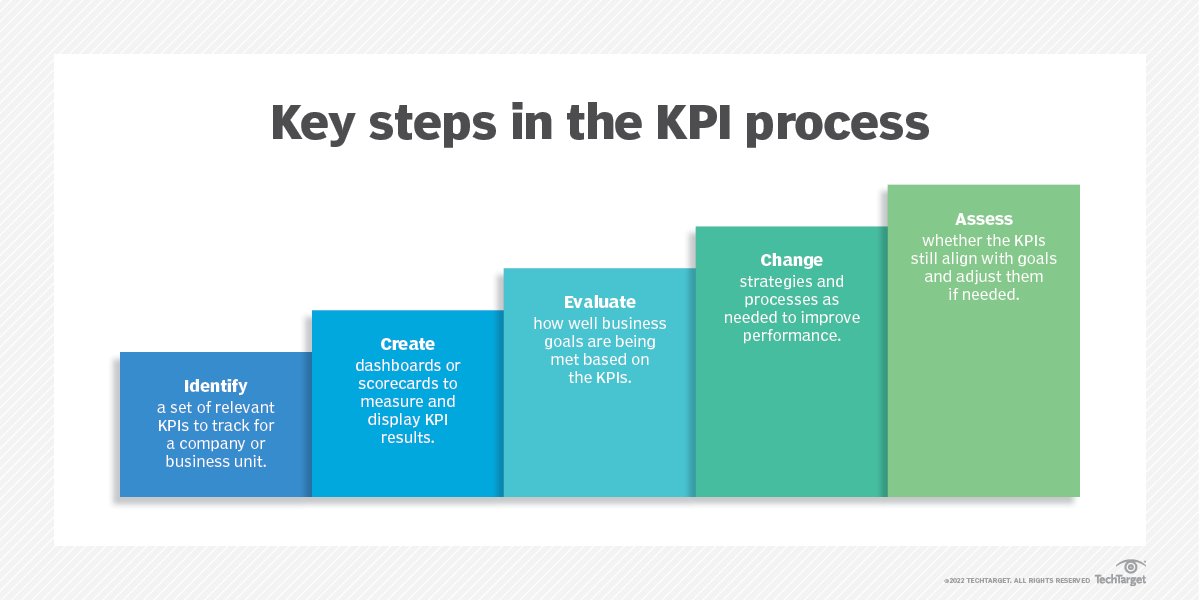KPI (Key Performance Indicator)
What is a KPI (Key Performance Indicator)?
Definition:
“Key Performance Indicators (KPIs)” refer to measurable metrics that organizations use to evaluate their success in reaching specific goals and objectives. KPIs provide quantifiable data that helps assess performance, monitor progress, and make informed decisions. These indicators vary based on the nature of the business or project and are crucial for tracking key aspects that contribute to overall success.
Analogy:
Consider KPIs as the dashboard of a car. Just as a driver monitors speed, fuel level, and other indicators to ensure a smooth and efficient journey, businesses and organizations use KPIs to track and manage key aspects of their performance.
Further Description:
Key Performance Indicators cover various aspects of business operations and can include:
Goal Alignment: KPIs should align with the organization’s overall goals and objectives, providing a clear path for measuring success.
Quantifiable Metrics: KPIs are quantitative, allowing for precise measurement and analysis. Examples include revenue, customer satisfaction scores, conversion rates, and website traffic.
Relevance to Business Strategy: Effective KPIs are directly tied to the organization’s strategic priorities, reflecting critical success factors.
Timely and Accurate Data: KPIs rely on timely and accurate data to provide meaningful insights. Regular monitoring ensures that organizations can adapt quickly to changing circumstances.
Benchmarking: KPIs often involve comparing current performance against historical data or industry benchmarks to identify areas for improvement.
Adjustment and Iteration: Organizations should be prepared to adjust KPIs based on evolving business needs and objectives. Regular review and iteration are essential for staying relevant and effective.
Why are Key Performance Indicators Important?
Strategic Decision-Making: KPIs provide actionable insights, enabling organizations to make informed and strategic decisions aligned with their goals.
Performance Monitoring: KPIs allow for continuous monitoring of critical aspects of performance, helping organizations stay on track and identify areas that require attention.
Goal Achievement: By aligning KPIs with organizational goals, businesses can track progress and ensure that efforts contribute to overall success.
Resource Allocation: Understanding which factors contribute most to success helps organizations allocate resources effectively, focusing on areas that have the greatest impact.
Communication and Accountability: KPIs serve as a common language within an organization, facilitating communication and holding teams accountable for their contributions.
Examples and Usage:
Sales Growth: A common KPI for businesses is the percentage increase in sales revenue over a specific period.
Customer Acquisition Cost (CAC): CAC measures the cost of acquiring a new customer, helping businesses assess the efficiency of their marketing and sales efforts.
- Employee Productivity: KPIs related to employee productivity, such as sales per employee or projects completed on time, provide insights into workforce efficiency.
Website Traffic and Conversion Rates: Online businesses often track website traffic, conversion rates, and bounce rates to evaluate the effectiveness of their digital presence.
Customer Satisfaction Scores (CSAT): CSAT measures the level of satisfaction among customers, providing valuable feedback for improving products and services.
Key Takeaways:
- Align KPIs with organizational goals to ensure relevance and strategic focus.
- Choose quantifiable metrics that provide clear insights into performance.
- Regularly review and adjust KPIs to adapt to changing business conditions.
- Use KPIs as a tool for strategic decision-making, resource allocation, and performance monitoring.
- Examples of KPIs include sales growth, customer acquisition cost, employee productivity metrics, and customer satisfaction scores.





